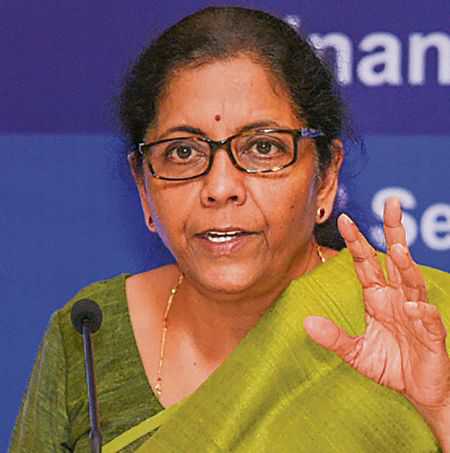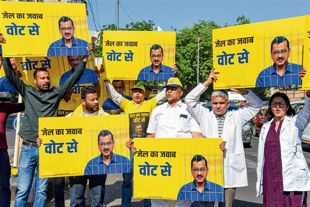
Nirmala Sitharaman, Finance Minister
Sandeep Dikshit
Tribune News Service
New Delhi, September 20
Union Finance Minister Nirmala Sitharaman today cut corporate taxes to the lowest level among South-East Asian countries, the move coming ahead of Prime Minister Narendra Modi’s meeting with the CEOs of 61 top business houses in Houston and New York.
Sitharaman reasoned that the annual hit of Rs 1.46 lakh crore to the government exchequer because of the cuts in three spheres — basic corporate tax rate, minimum alternate tax (MAT) and surcharge — will be made up in the near future by Indian and foreign companies expanding or setting up new manufacturing facilities and generating greater employment.
The step to reduce MAT was being sought by the industry as was the removal of enhanced surcharge on capital gains including for foreign portfolio investors. An office-bearer of a leading industry chambers said the announcement will not only bolster the bottom-line of corporates but also stall a sense of panic that often worsens a slowdown into a recession as the industry remains wary of making fresh investments.
The stock market voted with its feet — surging 1,600 points in the first 45 minutes after Sitharaman’s announcement — with sources attributing bulk of the buying to Life Insurance Corporation. The standout feature is that the cuts are retrospective; they take effect from April 1, 2019. The advanced tax already paid by corporates will be adjusted in the next payment cycle.
The expectation is that the lower taxes and the inbuilt phasing out of exemptions — the bonanza is not available to corporates that avail of various concessions — will make the Indian tax rates simpler as well as the lowest in the region. Coupled with constant efforts towards ease of doing business in India, this simplification and lowering of rates will aid PM Modi’s pitch to US corporates to shift their manufacturing facilities to India.
Corporates shifting out of China have so far bypassed India and instead opted for tax and investment-friendly South East Asian countries such as Vietnam, Cambodia and Malaysia. This set of amendments in IT Act and Finance Act has been effected through an ordinance, which has been passed. The concessions closely follow the recommendations of a committee on reforming the direct tax code.
Sitharaman said the other main feature of this committee’s recommendations—reducing personal income tax—will take some time as the government is still scrutinising the fine-print. “This indicates that the government is adopting a tax stimulus route rather than increasing government spending to help the recovery process. These measures place India in a formidable position to capture new growth opportunities and create massive employment,” noted the CII.
The government also expanded the scope of Corporate Social Responsibility (CSR) spend by including a host of public funded universities, IITs, national laboratories and autonomous bodies that conduct research in STEM (science, technology, engineering and medicine) to promote sustainable development goals. Till now, the scope in this area was limited to technology incubators located within Centre-approved academic institutions.
Union Home Minister Amit Shah had, while addressing industrialists of All India Management Association, said there was no escape from investing in precisely these areas to enable India to move to the next stage of growth.



























